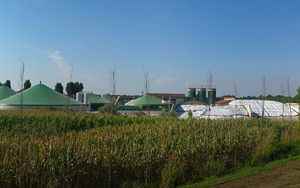(Finance) – What can be the best and sustainable solution to adopt and target the targets reduction of emissions and use of renewable sources according to the objectives set by the directive on sources renewable REDII – which expects the suppliers of petrol, diesel and methane to achieve by 2030 a share equal to 16% of renewable sources on the total of fuels released for consumption? There is no single answer, but certainly one piece of the puzzle is the need to lay the foundations for the development of a new industry, respectful of sustainability and circularity criteria.
For AssoDistilNational Industrial Association of Alcohol and Brandy Distillers, the way to go is to use bioethanol sustainable, a resource already available in Italy and which does not require new infrastructures, a 100% renewable biofuel capable of reducing emissions by at least 75% compared to fossil fuels. Precisely these issues were at the center of the workshop “Bioethanol: sustainable mobility is now!” – organized by AssoDistil to raise awareness among political decision makers and public opinion on this important resource.
With the RED II and the Integrated National Energy and Climate Plan (PNIEC) of 2020, our country has introduced a progressive obligation of biofuel mixed with petrol equal to 0.5% in 2023 and 3% in 2025. Since today bioethanol is probably the only biofuel that can be mixed with petrol, AssoDistil estimates that the adoption of this standard could translate into a share of this product equal to at least 55ktonn / a in 2023 and at least 320 ktonn / a in 2025 and which will replace an equal amount of fossil fuels.
Bioethanol can also be obtained from agro-food waste (advanced bioethanol) and is perfectly compatible with current engines of the car fleet in circulation and therefore does not have any need for expensive infrastructure – as is the case for other energy carriers. In fact, bioethanol can be mixed with petrol without any need for interventions on cars in circulation up to at least 10%, which is in fact the standard used in the major countries of the European Union. Furthermore, bioethanol is produced in Italy from certified sustainable supply chains that use agricultural residues, such as pomace, lees, dedicated no-food biomass and agro-industrial waste. This also sets the stage for one conversion industrial from the petrochemicals towards a green chemistry, which in Italy presents absolute excellence having been the first in the world to develop a technology for the production of bioethanol starting from cellulose.
For Italy, in the face of a certain demand of at least 10% of bioethanol in petrol by 2030 and a strategy of public incentives for the realization of investments, it could therefore be envisaged the realization of at least 15 new plants with the consequent mobilization of approx 1.5 billion euros investment, 16 thousand new jobs in industry, in addition to 30 thousand in the agricultural sector with an overall income integration of approximately 1.5 billion. This without considering the possibility of using part of the more than 3 million hectares of inactive land in Italy to cultivate the raw material for the production of advanced bioethanol.
“In terrible moments like those we have been experiencing for a couple of months now following the Russian-Ukrainian conflict – declares President AssoDistil, Antonio Emaldi – the use of alternative energy sources to fossil fuels, such as bioethanol, appears extremely essential to free ourselves as much as possible from oil imports and, at the same time, improving the environmental impact. It is clear to everyone that the increase in inflation, energy costs, raw materials and logistics are putting a strain on the resilience of the European system, both at a social and industrial level. In the hope that the conflict does not extend and end as soon as possible, it is however our duty to think that only with the construction of new industry and jobs will it be possible to mitigate all the negativities mentioned above. And bioethanol represents an opportunity for our country that must certainly be seized. “
“As AssoDistil we ask for binding and increasing targets for the release for consumption of bioethanol, both conventional and advanced in the gasoline supply chain at least until 2030 to guarantee an adequate reduction of emissions.” – explains Sandro Cobror, Director of AssoDistil. “Furthermore, the excise duties imposed on bioethanol are inexplicably equated to those on petrol which are among the highest of all the fuels on the market. In this sense, we hope for a revision of excise duties so that they take into account the environmental impact of individual fuels: the polluter pays more. Lastly, as an association, we ask for support for investments in plants for the production of advanced bioethanol alongside a streamlining of bureaucracy which today risks penalizing the sector too much “.
